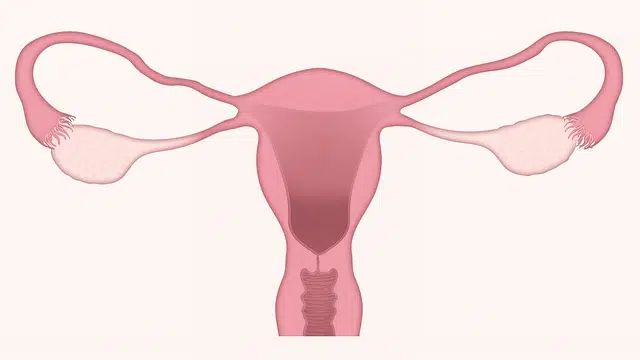
The ovaries are the female gonads.
The gonads are the organs responsible for the formation of gametes . The term has its etymological root in the Greek word gonḗ , which translates as "generation" .
Gametes, for their part, are the sexual cells (female and male) that, when united, generate the zygote of animals and plants.
The female gonads
The female gonads are the ovaries , which produce and secrete eggs (the female gamete) and various hormones. In humans, these gonads are paired structures that are linked to the uterus and the wall of the pelvis.
If a tumor appears in the ovaries, a woman may undergo an oophorectomy , a surgical procedure that is performed to remove one or both gonads. When both ovaries are removed, the person enters menopause since they cannot produce more eggs . It should be noted that oophorectomy can also be carried out in a sex change process.

The male gonads are called testicles.
The testicles
The testicles , on the other hand, are the male gonads . Oval in shape, the function of these glands is the secretion of sperm (the male gamete) and sexual hormones.
Every man has two testicles that are located in a pouch called the scrotum , located under the base of the penis. In the testicles there are the seminiferous ducts, which produce sperm and communicate with the excretory ducts.
Anorchia is a disorder that causes a child to be born without testicles. Another medical condition is cryptorchidism , in which the testicles do not descend from the abdominal cavity into the scrotum. Among the problems that can occur specifically in the testicles or scrotum, testicular cancer and hydrocele appear.
The gonads and hypogonadism
Another known disorder is called hypogonadism , and is characterized by little or no production of hormones by the body's sexual glands. Depending on whether it happens to a man or a woman, the problem occurs in the testicles or ovaries, respectively.
Hypogonadism can have a primary or secondary cause. In the first case, the functioning of the gonads is not correct, and this can occur for several reasons, such as:
* suffering from an autoimmune disorder;
* complications in development and genes;
* presence of any infection that is related to the sexual organ;
* certain kidney or liver diseases;
* radiation exposure;
* consequence of some surgery;
* a trauma.
Among the genetic disorders that most frequently cause this problem of the gonads are Klinefelter syndrome and Turner syndrome, in men and women, respectively. People who suffer from an autoimmune disorder (such as type 1 diabetes or one that affects the adrenal glands or liver, for example) are more likely to experience autoimmune damage to the sexual glands.
Secondary causes of this disorder
With respect to hypogonadism due to secondary causes, the problem is located in the parts of the brain that are responsible for controlling the gonads, that is, in the hypothalamus and pituitary gland, which do not function correctly. In this case, the causes may be the following:
* anorexia nervosa;
* bleeding in the pituitary area;
* some medication, such as an opiate or glucocorticoid;
* stop the consumption of anabolic steroids after a long time;
* genetic type disorders;
* any infection;
* poor nutrition;
* excessive iron consumption;
* dramatic weight loss, both in magnitude and speed;
* presence of a malignant tumor.
One of the most common treatments for this problem in the gonads consists of taking medications prescribed by the doctor, such as estrogen, progesterone and testosterone. They can be administered in the form of a pill, gel or patch, among other formats.
